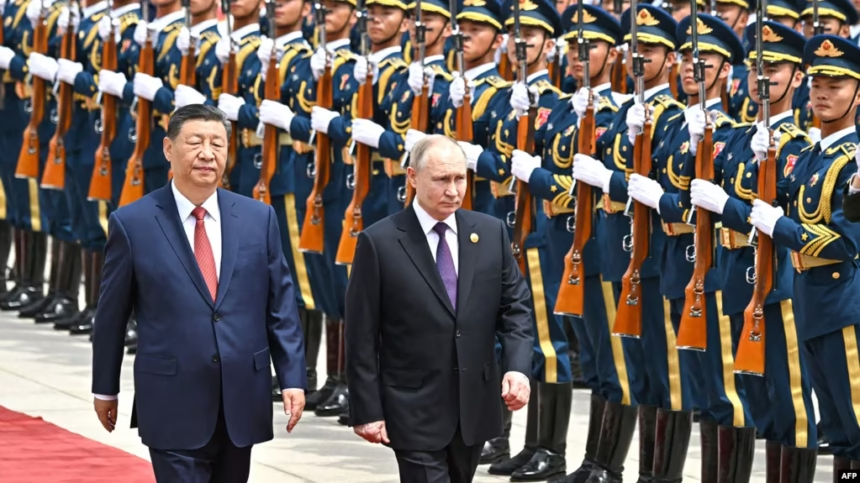The European Union says that China, including Hong Kong, is responsible for approximately 80 percent of the evasion of sanctions imposed on Russia, despite Beijing’s continued denials of these allegations.
According to a classified report from Germany’s Foreign Ministry, seen by the German newspaper Sueddeutsche Zeitung and public broadcasters NDR and WDR, EU Sanctions Envoy David O’Sullivan stated at a meeting in Brussels this month that although sanctions are significantly impacting Russia’s economy, challenges persist.
On May 27, media reported that the Chinese Embassy in Berlin declined to comment on these accusations.
On May 26, Ukraine’s Foreign Intelligence Service accused China of continuing to supply Russian defense factories with a wide range of goods that can be used for military purposes—a claim also strongly denied by Beijing.
“China has never supplied lethal weapons to either side in the conflict and strictly controls dual-use goods. Ukraine knows this very well. China strongly opposes baseless accusations and political manipulation,” said Chinese Foreign Ministry spokesperson Mao Ning during a press briefing on May 27.
The German Foreign Ministry report is a summary of the EU Foreign Affairs Council meeting held in Brussels on May 20.
Besides China, the report also names Kazakhstan, the United Arab Emirates, and Turkey as problematic in terms of sanctions enforcement.
Although the UAE claims exports to Russia have stopped, the report notes that no statistics have been provided and import data suggests otherwise.
The report also highlights that some EU companies are involved in sanctions evasion, which weakens the EU Commission’s credibility when negotiating with third countries about enforcing measures.
These revelations come less than a week after the EU moved to phase out imports of nitrogen-based fertilizers from Russia and Belarus by approving tariffs aimed at making such imports economically unsustainable within three years.
EU leaders have also threatened Russia with a “massive” sanctions package if Moscow refuses to accept a 30-day ceasefire proposed by Washington.
The upcoming 18th package of sanctions could potentially target the energy sector and introduce new financial restrictions.







